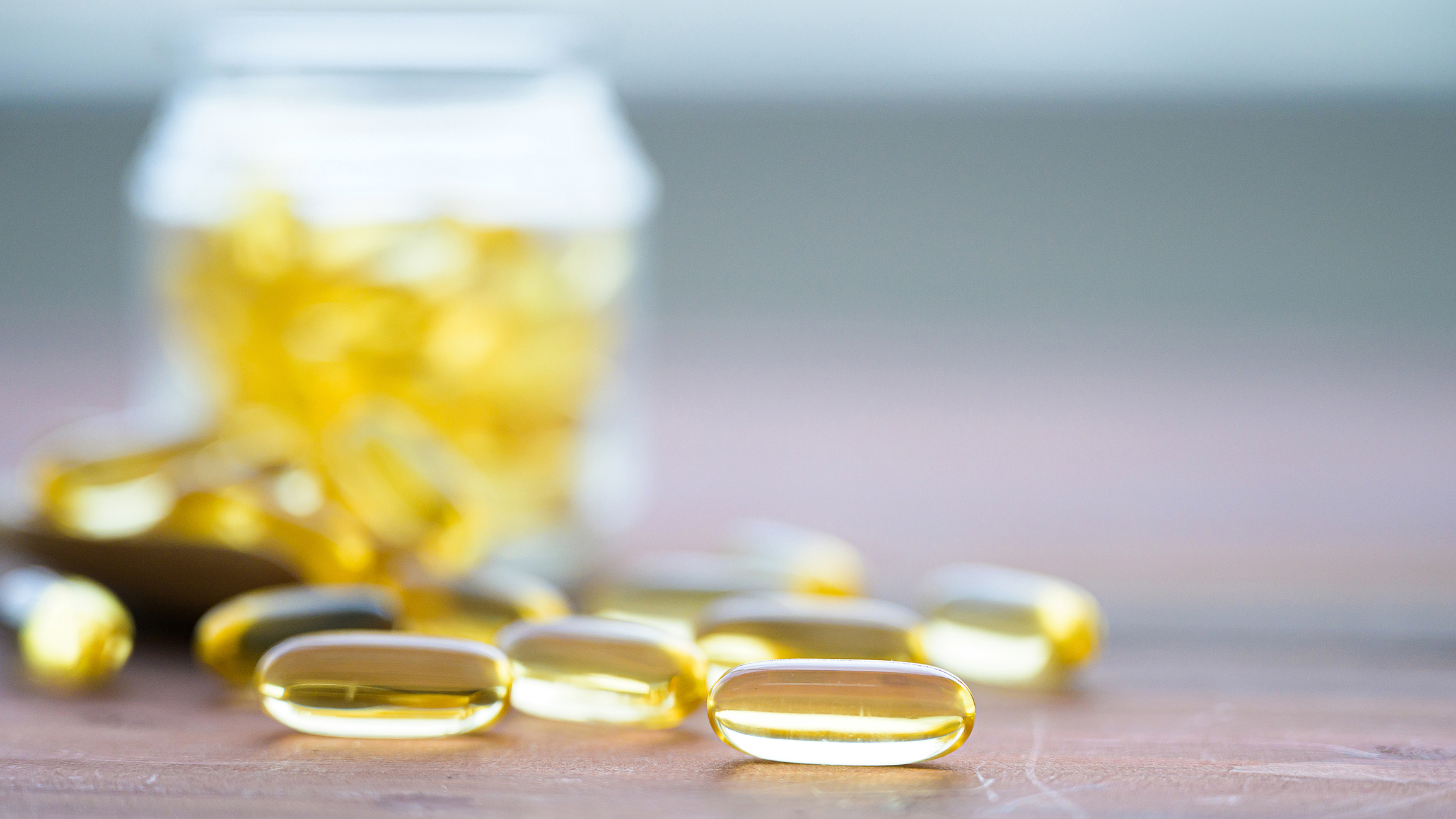Get Easy Health Digest™ in your inbox and don’t miss a thing when you subscribe today. Plus, get the free bonus report, Mother Nature’s Tips, Tricks and Remedies for Cholesterol, Blood Pressure & Blood Sugar as my way of saying welcome to the community!
Extra cardioprotective effects of omega-3s discovered

It’s no surprise omega-3s are your heart’s best friend. Studies have shown not only do they reduce risk of a heart attack — but if you do have one, higher blood levels of the essential fatty acid also point to better survival odds. Now, their protective effects have been found to lower risk of sudden cardiac death…
The Fatty Acid Research Institute recently released a study showing an in-depth connection between omega-3s and heart rate recovery — a measurement of heart health.
Dr. William Harris, the co-author of this study, and his team investigated more than 13,000 patient records that included preventative exams done over a ten-year period. These records included data on both treadmill and exercise testing, as well as patients’ omega-3 index levels (this shows the amounts of EPA and DHA in the blood).
One component of the exercise test is called “heart rate recovery” and it refers to how quickly the heartbeat slows down after maximal exercise. The faster it drops, the healthier the heart.
What Dr. Harris found confirmed what he suspected all along about how much omega-3s help the heart…
When comparing the heart rate recovery from treadmill exams to the Omega-3 index, they found that those with a higher omega-3 index had a quicker heart rate drop. This backed up what two other previous studies had shown: that a slow heart rate recovery is associated with increased risk for sudden cardiac death — which fits with higher EPA and DHA levels being linked with reduced risk for sudden cardiac death.
Dr. Harris said about this study that “These benefits on cardiac autonomic tone join other cardioprotective effects of omega-3 fatty acids, including the reduction in blood pressure, chronic inflammation and platelet aggregation, to at least partially explain why omega-3s are good for the heart.”
Ways to give your heart an omega-3 boost
Diet is a great way to improve your omega-3 levels. By eating both the right foods and amounts, not only will you increase your omega-3 intake, you’ll start reaping the heart benefits that go along with it as well as other benefits like snappier brain function, better eyesight, smoother joints and more.
When choosing foods, always remember to consider the source. Depending on the diet of what you’re eating, you may not be getting the full amount of omega-3s available, and in some cases, you could be making your health worse.
For instance, farmed salmon companies will gloat about how their fish have more omega-3s than wild salmon. And while true, farmed salmon is denser in calories, fattier (about 20 percent more fat than wild-caught salmon), is exposed to risky pollutants, and contain unsafe contaminants that may negate the long-term benefits from omega-3s.
Here are the top five foods containing the highest amount of omega-3s:
- Salmon
- Mackeral
- Sardines
- Caviar
- Anchovies
Great sources also include herring, halibut, Lake trout and Albacore tuna.
The FDA encourages Americans to eat between 2-3 portions of fish a week to meet the recommended amount for omega-3s.
But what if you’re not a fan of fish?
Fortunately, nature has provided us with other non-fishy sources of omega-3s including:
- Grass-fed lamb (Highest omega-3s of any land animal)
- Grass-fed beef (Four times higher omega-3s than grain-fed beef)
- Chicken fed Omega-3 feed
- Omega-3 eggs (Will be labeled on the cartoon)
- Bison (Always a win since they only eat grass)
I would be amiss if I didn’t mention plant sources of omega-3s. Keep in mind, omega-3s from non-animal sources do not have EPA or DHA, the primary fatty acids our body’s use. Instead, plant omega-3s have the fatty acid ALA, which we convert to EPA and DHA in our bodies. Trouble is, our bodies don’t convert these very well, meaning we get minimal amounts of EPA/DHA from ALA.
Here are some high omega-3 plant foods:
- Flaxseeds
- Walnuts
- Chia seeds
- Hemp seeds
- Soybeans/edamame
Should you take omega-3 supplements?
Taking supplements may be the easiest way to get more omega-3s into your diet. In fact, you can now get a prescription for a pharmaceutical omega-3 supplement. Yep, they are so effective the medical establishment has now jumped on board.
Or you could choose your own fish oil or krill oil supplement. The great thing about krill oil, though, is you can take less krill oil than fish oil to get the same amount of EPA and DHA in your blood levels — no prescription needed. That’s because krill’s natural phospholipid structure makes it easier for your cells to absorb.
According to cardiologist Dr. Carl “Chip” Lavie, one of the authors of the most comprehensive analysis of the role of omega-3 dosage on cardiovascular prevention to date (performed last year), “People should consider the benefits of omega-3 supplements, at doses of 1000 to 2000 mg per day — far higher than what is typical, even among people who regularly eat fish,” added Dr. Lavie. “Given the safety and diminished potential for interaction with other medications, the positive results of this study strongly suggest omega-3 supplements are a relatively low-cost, high impact way to improve heart health with few associated risks and should be considered as part of a standard preventive treatment for most patients with cardiovascular diseases and those recovering from myocardial infarction.”
Editor’s note: There are perfectly safe and natural ways to decrease your risk of blood clots including the 25-cent vitamin, the nutrient that acts as a natural blood thinner and the powerful herb that helps clear plaque. To discover these and other secrets of long-lived hearts, click here for Hushed Up Natural Heart Cures and Common Misconceptions of Popular Heart Treatments!
Fish Faceoff: Wild Salmon vs. Farmed Salmon Debating the health benefits and risks — Cleveland Clinic
Metabolism of alpha-linolenic acid in humans — Pubmed
FARI publishes new research on omega-3s and heart rate recovery — Eureckalert!













